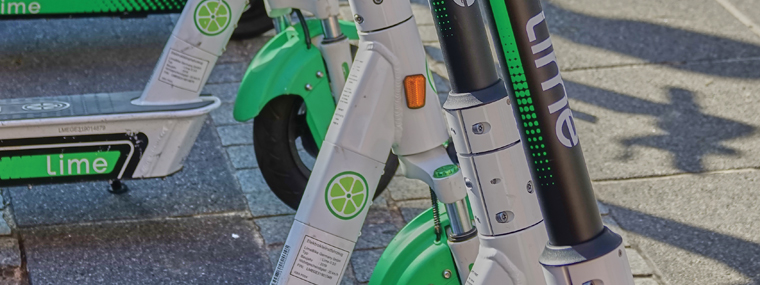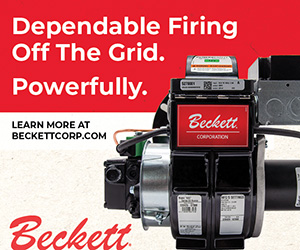
When Renting Makes Sense
By Diane M. Calabrese / Published March 2020

Short-term needs and trial runs are the top reasons contractors rent equipment instead of buying it. While many distributors offer rental options, others do not. Are there factors a distributor should consider before adding rentals? Yes.
There are several things to keep in mind, says Dennis Black, president, McHenry Pressure Cleaning Systems Inc. in Frederick, MD. “Is the distributor willing to make the investment of having the right equipment and enough quantity of equipment and devoted inventory to handle demand?”
Moreover, the distributor must tie attention to equipment into the business model. “A distributor needs to make the dedicated investment of time and personnel to service—prep—rental equipment in and out,” explains Black.
Good equipment must head out the door with renters. “Top-quality units that are in prime operating condition have to be offered,” says Black. “We attempt to make sure our units are clean and very presentable.”
It’s important to understand and account for all the costs associated with rental equipment. “They include the costs of having dedicated rental inventory, service staff to make sure equipment is maintained, and space to store rental equipment,” explains Black.
Self-restraint also enters the picture. “You must be disciplined to keep equipment dedicated to rental and not be tempted to sell rental equipment too early,” says Black. “We are disciplined to not sell rentals until they have a set amount of time or use on them.”
After a careful accounting of factors, offering rentals can be very good for a business. “We have found that renting quality, specialized equipment pays off,” says Black.
“We attempt to offer something a little different than the normal rental store,” explains Black. He gives as examples trailer units, higher psi units, larger flow (higher gpm) output equipment, and hot water units.
“We also find an advantage to renting good quality, well-maintained equipment,” says Black. “Customers do not want to rent worn out, non-working equipment. They will pay more for equipment that works and that they cannot get at the regular rental store. Having a rental fleet also provides a good demonstration fleet; in other words, you can use rentals for demonstration rather than using new equipment from inventory.”
Be ready to ask questions of would-be renters, says Josiah Hagemann, manager at American Pressure Inc. in Robbinsdale, MN, and he gives us a short list to consider.
“Why is this customer looking to rent instead of making a purchase?” is a good first query, says Hagemann. “Is it a homeowner who has a weekend of cleaning he wants to do? Is his machine being serviced and he can’t be without a pressure washer? Is it a special project that is outside his normal day-to-day business? Is it a budget concern?”
Consider responses carefully. “Knowing this information can help you better understand your customer’s needs and get them the solution that best fits them,” says Hagemann. “They might come in thinking rental is the best option for them, but after answering some of the questions, they might leave with a lease application and end up purchasing the equipment instead.”
Making rentals an option results in a plus for a distributor, says Hagemann. “Being able to provide the customer with a solution to his cleaning problem, if you are able to provide him quality equipment when he needs it, increases the likelihood for potential equipment purchases in the future.”
Hagemann also cautions other distributors to remember to incorporate the cost centers that are part of a rental business. “You will need to maintain the equipment,” he explains. “You will need to spend more time training the customer on proper use of equipment each time it is rented.”
Be sure, too, to consider the impact incorporating rentals may have on overall financials. “There is an upfront cost to keep rental equipment in your inventory, so cash flow can become an issue,” says Hagemann.
Clarity
“We have good customers come in and ask if we rent equipment,” says Roy G. Chappell, CEO, Chappell Supply and Equipment in Oklahoma City, OK. “What they were getting from the rental yards was always breaking down.”
The ability to respond to the request from a good customer is one excellent reason to incorporate rentals. Another, of course, is that some of them decide to make a machine their own. “Many customers that rent equipment end up buying it,” says Chappell.
It’s not just the performance of the machine that sells the customer on it. It’s the service that the customer receives. “Customers find out they can depend on your equipment to be ready to go and you stand behind your equipment and service,” explains Chappell. The good interaction begins with the customer knowing they are getting quality.
“We rent new equipment and sell it before it has 400 hours on it,” says Chappell. “The biggest reason companies come to us for equipment is because it is new. They don’t want to rent old, used equipment that breaks down on the job. They don’t mind paying double the rent for something that will do the job quickly.”
Keeping equipment on the rental roster maintained and prepared for another renter is a must. “When the rental unit comes in, within three hours we have it checked and ready to go back out,” says Chappell. That doesn’t mean the equipment simply heads out the door with the next person requesting it.
Speedy turnaround on equipment is coupled with a measured approach to obtaining a profile of the customer, including who they are and how they will use the machine. In addition, there are restrictions on when rentals can be made.
“No rental can start after 3:00 p.m. or on the weekend, unless it is a company that you are familiar with and you set up on terms prior to letting them have the equipment,” says Chappell. “You want to know who the company is and that they can pay, and who has the authorization to sign for that company.”
Be certain the customer understands responsibilities in addition to proper use of equipment. “We also make the customer aware that there is a clean-up fee, and they are responsible for loss or damage to parts or equipment.”
Whether customers are buying or renting, a distributor must exercise prudence. Chappell recommends four steps to take if someone calls in to rent equipment.
“One, get the full name and phone number they are calling from,” says Chappell. “Get all company information. Where will the equipment be used? What type of job are they doing? All this should be written down.”
“Two, call the company and see if the person is authorized to rent equipment,” says Chappell. “Three, if the company is on COD terms, get the credit card before they arrive to pick equipment up. Four, get a copy of the driver’s license of the person picking the equipment up, along with the type of vehicle and tags.”
At first, it seems perhaps a lot to ask of a customer, but the protocol benefits honest renters because the distributor’s equipment does not disappear or suffer from misuse. “Doing your homework will keep the crooks away,” says Chappell.
To be able to provide a viable and reliable rental service, get to know customers, says Chappell. “Find out what companies that rent pressure washers are doing. Find out how many times a year they rent.”
Do not hesitate to ask customers about the problems they have when renting, says Chappell. It may be getting the correct size for the job or absent stock.
When adding the cost centers associated with rentals, include insurance. The units will need insurance coverage. That coverage may be different for machines moving across state lines.
A distributor who decides to rent equipment will want to assess the needs for equipment across 12 months. “We keep 15 to 20 units in our rental fleet in summer,” says Chappell. “From November to March, we keep 20 to 25 units, as rentals are two and a half to three times more in the winter.”
Finally, to decide what to charge for a rental, a distributor must take in all cost centers and be ready to cover them and still make a profit. A distributor may want to get some context about what the market will bear by doing a bit of informal research in a different niche—a car-leasing enterprise, for instance.
If there is a rent-to-own (RTO) center nearby, go in and check on a familiar item, such as a television. Ask about RTO terms. According to 2019 RTO information presented by the financial extension service at the U.S. Department of Agriculture, a $250 television may be had for about $13 per week for a period of 13 weeks to 78 weeks. At 78 weeks, the customer would own the television, but at a price that is almost four times that for which it could be purchased.
The short of it is, renters willingly pay more to get what they need on an urgent or one-time basis. But there is one caveat: They want equipment that is like new and performs as such.





